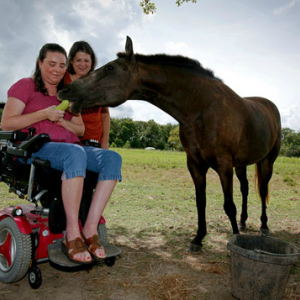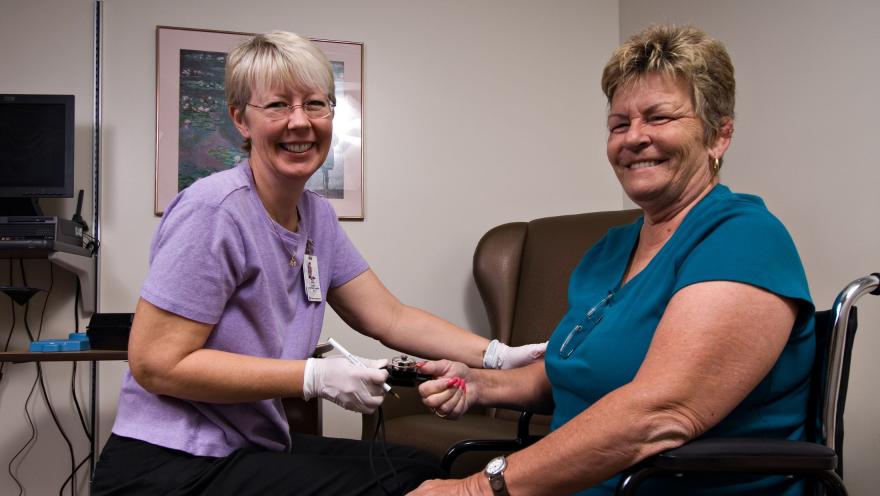In recognition of National Wellness Month, we are exploring the many facets of wellness and the ALS community, shining a spotlight on the act of practicing healthy habits to attain better physical and mental health outcomes.
Focusing on caring for a person’s overall wellness is an important part of ALS multidisciplinary care. For people living with ALS and their families, the disease impacts every aspect of life, not just physical wellness, but also emotional, spiritual, social and financial wellness too.

A key member of the care team whose job description touches many aspects that impact overall wellness is the social worker. “When I first meet with patients and families to discuss my role and assess their needs, I am asking a broad range of questions that help our team get to know them outside of the fact that they have ALS,” says Colleen Hoarty, a licensed clinical social worker (LCSW) at The University of Nebraska Medical Center ALS Certified Treatment Center. “What are your interests? What hobbies do you have? What brings you enjoyment? Are your spiritual? Religious? What—or who—has helped you cope with challenges in the past? What things are important to you in life?”
Part of this assessment is understanding where people are in their ALS journey and helping them to live their lives in the way they want to. “Sometimes it takes a while before newly diagnosed patients and families can think about something like living ‘well’ with a disease like ALS,” Colleen says. “I think there is a natural grief process for everyone when diagnosed with a disease like ALS, for patients and family members. And it is important to be able to grieve the many, many losses that come with this disease. However, we don't want people to get stuck in their grief.”
The social worker’s role is also about helping people explore new paths to wellness by identifying the things that are important to them and finding ways to participate in activities they enjoy. “I tell people that with this diagnosis you are in totally new territory. And just as anytime that we are in a new place, it can be helpful to be open to trying new ways of doing things. With a diagnosis like ALS, the methods you have used before for coping may not be as helpful this time, or you may need more than what you have tried in the past,” Colleen says.

As Colleen points out, embracing wellness also includes people believing they still have value and are important to many, for many reasons. “I think part of living well with ALS is shifting your purpose in life and finding meaning in where your life is now. For many people, their purpose comes from the work they do, or the things they do for their family and community. This will change at some point with an ALS diagnosis and so the wellness challenge is to find what other things can give your life a sense of meaning or purpose,” she says.
While wellness means different things to different people, social workers on the care team are committed to listening to the needs, concerns, and hopes of those in their care. “I want patients and families to know that our team understands that they come to us with a full life outside of their diagnosis and that no two patients with ALS are the same,” Colleen says.
To continue to follow stories about people living with ALS in the community and learn more about the disease, subscribe to receive our weekly blogs in your inbox HERE or follow us at als.org/blog.


Comments
No comment ...just want to join all of you. Overwhelmed by my husband's diagnosis.
Join the conversation. Please comment below.